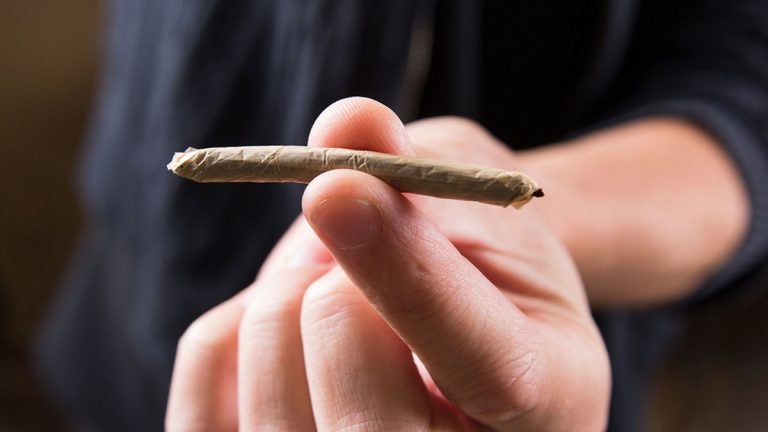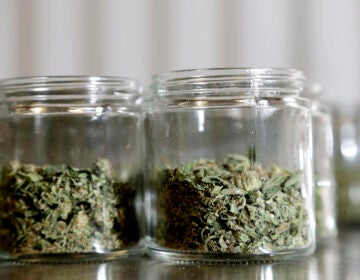Cops trained to spot drugged drivers could get a cut of tax revenue from N.J. weed sales
DREs use a nationally standardized method to spot the physical and physiological signs of drug impairment in a person, such as muscle tone, pupil size, and heart rate.

(Big Stock photo)
As New Jersey lawmakers continue to refine legislation that would regulate the state’s budding recreational marijuana market, one constant in the bills has been to set aside a portion of the tax proceeds to train specialized police officers.
Drug recognition experts — or DREs —are cops trained to identify drugged drivers who are too impaired to get behind the wheel.
Law enforcement officials say DREs are critical to prosecuting drugged driving cases. But a current challenge before the state Supreme Court accuses DREs of using a faulty scientific method and seeks to have the technique thrown out.
“The legislature is rubber-stamping DREs and the reality is that there is a legitimate question that exists about how reliable DREs are,” said Kim Schultz, an assistant deputy public defender in the New Jersey Office of the Public Defender. “Are we really going to divert more money to a program that the courts aren’t even sure is reliable?”
DREs use a nationally standardized method to spot the physical and physiological signs of drug impairment in a person, such as muscle tone, pupil size, and heart rate. They also interview the arresting officer and the subject.
Simple blood tests can show the presence of drugs in a person’s body, but — unlike a breathalyzer test for alcohol — they do not necessarily prove that the person is too impaired by those drugs to drive.
Attorney General Gurbir Grewal said last year that the state was preparing to increase the number of DREs in anticipation of legalized recreational marijuana.
Schultz and other critics say the method is scientifically dubious and that rank-and-file police officers do not have sufficient medical training to be able to make such determinations about people who may exhibit certain physical symptoms for a slew of reasons other than drug impairment.
But some police officers say the DRE method is backed up by evidence and is one of the best ways to try a drugged driving case in court.
“A certain drug impairs the body a certain way,” said Jackson Township Police Sgt. Mike Kelly, who is a DRE and a DRE trainer. “Based on the history of the DRE program, based on all of the science behind it, when we do our test we are measuring impairment.”
Kelly is also president of the New Jersey Association of Drug Recognition Experts.
It is unclear when the legislature will next hold a hearing on laws to set the groundwork for legalized recreational marijuana, which voters approved by a two-to-one margin in the general election.
A hearing in the Supreme Court challenge likely won’t occur until next year.

Get daily updates from WHYY News!
WHYY is your source for fact-based, in-depth journalism and information. As a nonprofit organization, we rely on financial support from readers like you. Please give today.



